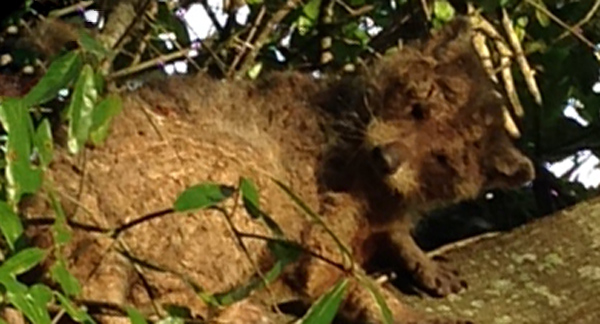- info@wildlifeanimalcontrol.com
Call us for help in your town
Wildlife Control Education
What are symptoms of a sick raccoon?
Being mammals, raccoons will express many of the
same symptoms of sickness as dogs and cats and
even us humans. The range, type, and severity of
the symptoms will depend on the contracted
disease. As of today, the three most fatal
diseases to raccoons are rabies, Canine
Distemper, and Feline Distemper.

Since raccoons are well known for being an RVS
(a Rabies Vector Species), it's important to
note the apparent symptoms that manifest in an
infected raccoon. Rabid raccoons often will
appear disorientated or lethargic. Where a
healthy raccoon walks attentively and
consciously, a rabid raccoon may stagger or
stumble as it moves, walk in circles, or simply
not move at all. Paralysis in the hind legs has
been noted in infected raccoons that drag their
legs as they move.
Aside from physical symptoms, a rabid raccoon
also may exhibit abnormally aggressive or
friendly behavior to those that approach it.
Famous symptoms, such as foaming at the mouth,
and sensitivity to light and sound, are also
indicative of an infected raccoon.
When examining supposedly rabid raccoons, it's
extremely important to take note of the
symptoms. Canine Distemper (CDV), a
measles-related disease that can inflict pain
and death upon the raccoon, has symptoms very
similar to rabies. In advanced cases of CDV,
vomiting, diarrhea, labored breathing, coughing,
and high fever have been reported. More obvious
symptoms of CDV include nasal discharge (mucus
on and around the nose) and a phenomenon known
as hyperkeratosis, which is the overgrowth or
hardening of the skin, particularly on the nose.
Feline Distemper (FDV), too, can infect
raccoons. Unlike rabies and FDV, however, it
does not attack the neurological system. It also
seems to be the least fatal of the three viruses
mentioned in this article, though it can cause
death. Symptoms of FDV include depression, loss
of appetite, foamy vomiting, and bloody
diarrhea.
These are just a few diseases that raccoons can
contract and express symptoms of, but are the
most dangerous to raccoons. While most people
are aware of the danger of rabies in raccoons,
the virus is easily dealt with as it cannot
survive outside of a host and has a readily
available vaccine. So long as symptoms of rabies
are noted early, the virus is very treatable,
and poses little threat compared to CDV or FDV.
While rabies can only be transmitted by being
bitten by an infected, which occurs through
biting, CDV and FDV both are transferred through
physical contact, and can survive outside of the
host for several days. CDV is especially
contagious, as it can become airborne and
inhaled by an unsuspecting host.
Any raccoon which presents the noted symptoms
should be handled with extreme caution, as an
infected raccoon, as well as its disease, can be
extremely dangerous.
Go back to the How to
get rid of raccoons home page.
Need raccoon removal in your hometown? We service over 500 USA locations! Click here to hire us in your town and check prices - updated for year 2020.

















